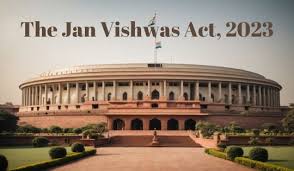Written By: Raxanda Bist, Intern, Army Institute of Law
Introduction
As per the World Intellectual Property Organization (WIPO), Intellectual Property refers to creations of the mind, such as inventions; literary and artistic works; designs; and symbols, names and images used in commerce. Some of the most commonly dealt Intellectual Property Rights (henceforth referred to as IPR) in India are Copyrights, Trademarks, Patents etc. In recent times there has been a significant rise in arbitration clauses within various kinds of Agreements concerning Intellectual Property. However the position regarding arbitrability of IPR Law is still ambiguous in India.
The Law
It must be noted that Section 62 of the Copyright Act, 1957 and Section 134 of the Trade Marks Act, 1999 do not prohibit or oust arbitration as dispute resolution of IPR matters. Furthermore, as per Section 89 of the Civil Procedure Code, if the court deems fit, it can allow arbitration, mediation or conciliation for settlement of disputes between parties outside the court.
For a matter to be considered as arbitrable the two tests of arbitrability, as laid down in the Booz Allen Case[1] and expanded upon by the Ayyasami Case[2], are applied:
- Disputes involving the adjudication of actions in rem as opposed to actions in personem, such as, disputes relating to criminal offences, guardianship matters etc. (hereinafter, the first test of arbitrability);
- Disputes arising out of a special statute, which are reserved for exclusive jurisdiction of special courts, such as, matters reserved for small causes courts (hereinafter, the second test of arbitrability)
However the Booze Allen case also held that Disputes relating to subordinate ‘rights in personam’ arising from ‘rights in rem’ have always been considered to be arbitrable.
Types of Arbitrable IP Disputes
To understand the various types of arbitrable IPR disputes we need to analyse the judicial approach adopted by various Courts in deciding these matters over the years-
The Mundipharama Case[3], echoed the second test of arbitrability that bars arbitrability of disputes arising out of special statutes which are reserved exclusively for civil courts. The issue was whether a claim of ‘copyright infringement’ was arbitrable. The Delhi High Court held the dispute to be inarbitrable given that infringement of copyright is a statutory claim, having definite statutory remedies that are to be granted exclusively by civil courts.
In SAIL Case[4], a claim of ‘trademark infringement’ was held to be inarbitrable by Bombay High Court stating that, “the rights to a trademark and remedies in connection therewith are matters in rem and by their very nature not amenable to the jurisdiction of a private forum chosen by the parties”. Here the first test of arbitrability, that makes actions in rem inarbitrable, was applied.
In Eros International Media Limited v. Telemax Links India Pvt. Ltd.[5], it was noted that the IP disputes arising purely out of contracts are arbitrable because they are actions in personam. Here the Petitioner had initiated arbitration for ‘violation of the contractual covenant’ – a claim although sourced purely in contract, still required an infringement of copyright to be established. The Bombay High Court held that all disputes arising in intellectual property are not considerably ‘right in rem’ and non-arbitral.”
In the case of Indian Performing Rights Society (IPRS) Limited v. Entertainment Network[6], the Bombay High Court drew a distinction between ‘in rem’ and ‘in personam’ rights. The Court relied on the judgment of Booz Allen, and considered the right of a licensor as a ‘right in rem’, which is in public interest.
However, the recent case of Hero Electric vs. Lectro E-Mobility helped clarify the stance of Courts on what kinds of IP disputes are arbitrable. Here the family agreed to the fact that the use of the Mark “Hero” by each of the Family’s Groups would be limited to use in pre-existing businesses, and to the exclusion of other groups. The same was executed vide the Family Settlement Agreement (FSA) and the Trademark and Name Agreement (TMNA). The issue was merely that the Plaintiff wished to restrain the defendants from using the Hero Mark in their business. Here, the rights in personam gave rise to rights in rem. Therefore, upholding the Indian perspective which considers rights in personam arbitrable under section 8 of the Arbitration and Conciliation Act, 1977, the Court held the said matter as non arbitrable.
Analysis & Conclusion
Recently the Courts can be seen to practice the trend that rights in personam are arbitrable, even if they arise from rights in rem. Therefore, IP disputes that are purely contractual are arbitrable such as disputes of royalty, geographical area, marketing and other terms of the license agreements. IPR Lawyers in India can and should freely arbitrate such disputes. However, a dispute of validity/ownership of an IP right should be decided by the court/assigned public administration, for the dispute would result in a judgement affecting the general public’s right to use the respective asset.
The suits pertaining to claims of infringement are dependent upon the facts and circumstances of each case. Here again, statutory infringement would not be arbitrable in accordance with the Mundipharma and SAIL cases; while infringement arising purely out of contract will be arbitrable in accordance with EROS case. In case a counter-claim about the validity of IP right is raised against an infringement claim, the counter-claim needs to be resolved by the court for it would then be an action in rem and pending such resolution, the arbitration may be stayed.
[1] AIR2011SC 2507
[2] (2016) 10 SCC 386
[3] (1991) ILR 1 Delhi 606
[4] Suit No. 673/2014
[5] LSI-1123-HC-2016-(BOM)
[6] 2016 SCC OnLine Bom 5893





